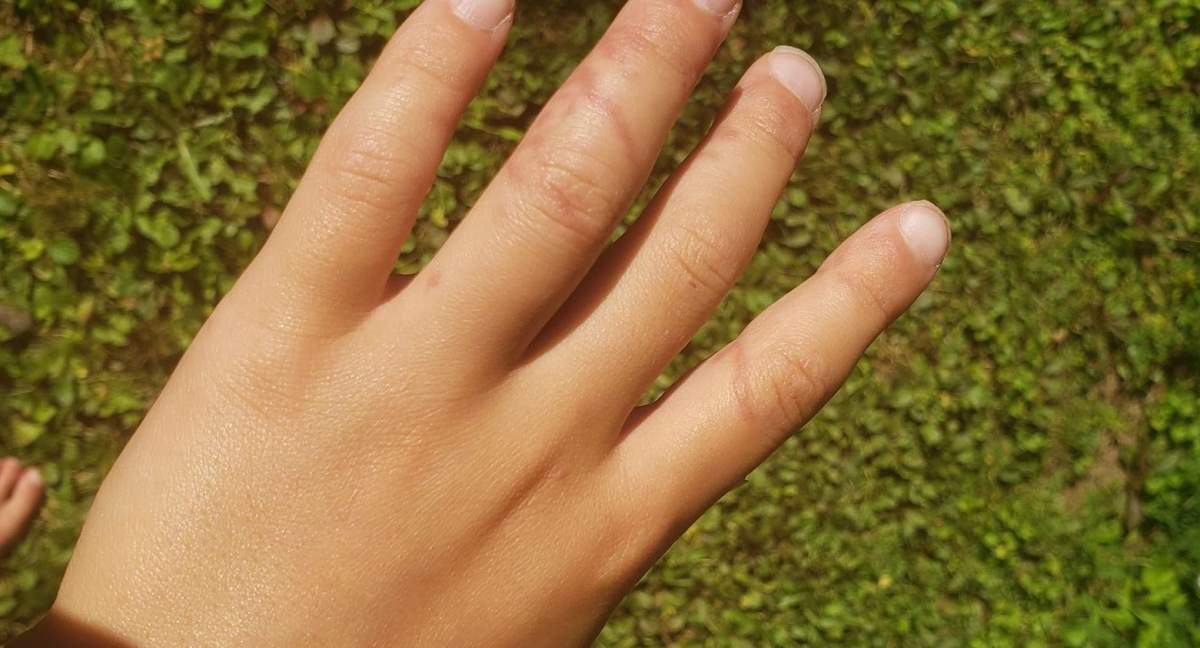A seven-year-old girl came out of the water screaming, after picking up what she thought were pink sunglasses at Lawrencetown Beach, says mother Kristy Legge.

It wasn’t until her daughter came up close that Legge saw what was going on.
“She was screaming like I’ve never heard before,” Legge says. “We’re all looking at her hand and she has tentacles, bluish-grey tentacles, wrapped around all of her fingers.”
Legge says he was grateful Maria was wearing a one-piece bathing suit, so only her fingers were caught.
Maria’s father carried her to the lifeguard station, Legge says.
Several other people at the beach noticed the commotion and noticed the creature had washed up on the beach, she says. Someone had suggested it was a Portuguese man o’ war, she says.
Legge says the lifeguard didn’t know how to treat Maria, so they decided to take her to IWK immediately. They also took the man o’ war in a plastic bag.
She says Maria started feeling nauseous and said the pain was travelling up her arm.
“On the car ride out, she was actually feeling cold, suffering from shock, and she fell asleep,” Legge says.
“It was really scary… She wasn’t doing very well at all.”
When the family arrived to the hospital, Legge says doctors also weren’t sure what they were looking at but concluded it was probably a man-of war.

Get breaking National news
Doctors monitored Maria’s heart rate and gave her a vinegar bath, which Legge says is extremely painful.

After a few hours, Maria was sent home with some ibuprofen for pain, Legge says.
“She’s doing much better today… It’s still swollen and tender to touch,” she says.
Legge says luckily Maria isn’t scared of the beach now and is eager to get back in the water.
However, Legge says she hopes residents take this as a warning to keep their eyes out and be careful when visiting a beach.
Aaron MacNeil, a Dalhousie University professor of marine biology, says it’s possible, but not common, to see a Portuguese man-of-war in the Nova Scotia area.
“This year is a particularly warm year in the North Atlantic, so we expect to see these tropical species more often,” MacNeil says.
And he says if there was one man o’ war, there are likely more around.
He says they often wash up and reach the shallow end.
“Even though the animal might be dead, the tentacles themselves can still have these stingers in them,” MacNeil says. “We have to be careful not to pick them up and certainly not touch the tentacles,” he says.
He says if someone does get a man o’ war wrapped around them, it is most important not to just rub it off.
“It can just spread those stinging cells all over your arm,” he says. “You want to carefully pick off the tentacles and unwrap yourself.”
He says vinegar is a standard treatment for any marine life sting, but an even better trick is covering the area with shaving cream and pulling a razor over it carefully.
“This will pull out the stingers and neutralize any other cells that could potentially sting you, remaining on your arm,” MacNeil says.






Comments